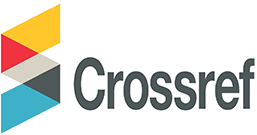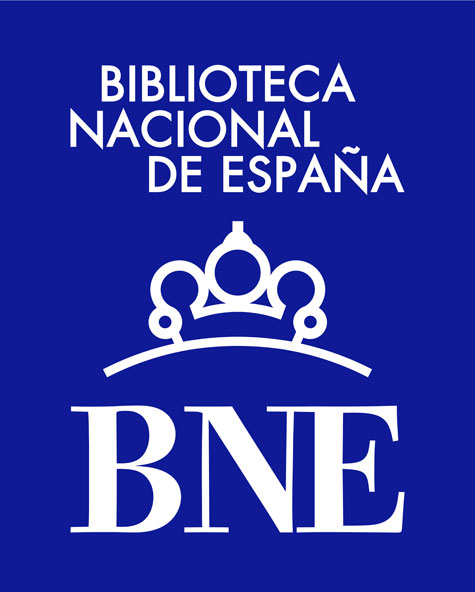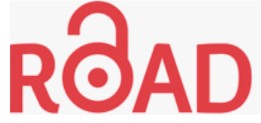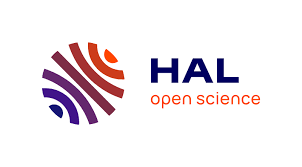Publication ethics
Protocol on Academic Ethics
The International Magazine of Education and Critical Social Analysis, Mañé, Ferrer & Swartz, follows the Protocol on Academic Ethics of the University of Malaga.
PROTOCOL ON ACADEMIC ETHICS OF THE UNIVERSITY OF MALAGA
INTRODUCTION
The principles of transparency, integrity, and academic and scientific honesty, inspired by social and ethical values, as referred to in the Preliminary Title of the current Statutes of the University of Málaga, as well as respect for intellectual property rights, constitute the framework of reference for the behaviors and attitudes that must be demanded from all members of an institution like the University. The entity responsible for the public service of higher education in training professionals in all fields of knowledge and the rigorous and original creation of new knowledge.
Academic integrity, therefore, is established as one of the essential and identifying elements of the University’s good practices and prestige. Conversely, fraud and academic misconduct constitute despicable behaviors that must be eradicated from the University. In this regard, on October 7, 2019, the Conference of Rectors of Spanish Universities issued a statement reaffirming "the total condemnation of the practice of plagiarism, as it is an action incompatible with academic integrity" and reminded that "universities are absolutely committed to eradicating this malpractice and have been working on tools to eliminate it for some time."
The University of Málaga, in accordance with its Ethical Code, approved by the Governing Council in a session held on January 30, 2018, enshrines respect for intellectual authorship and its recognition in all academic and professional activities as one of its general principles.
In light of these considerations and in order to protect, in any case, the principle of academic integrity and respect for intellectual property rights, it is deemed necessary to establish a protocol of action to ensure that the evaluation processes of students, academic works, particularly final degree projects, master's theses, doctoral theses, and the projects and reports presented in merit competitions for access and professional promotion of public employees, respect these rights, thus avoiding the fraud that so greatly harms the reputation of the University and its students, who must, in any case, be an example of good practice, truthfulness, and rigor.
In accordance with all of the above, this protocol aims to ensure academic integrity, prevent fraud, and sanction deceptive behaviors committed in the performance of university tasks. To this end, the University of Málaga must have preventive instruments to detect fraud and deter those who intend to act unlawfully, but also to sanction, withdraw, and annul, where appropriate, the merits, grades, and evaluations obtained through such fraudulent behaviors. All of this with the utmost legal guarantees, in a rule of law where the principles of hearing, contradiction, and presumption of innocence must be ensured.
This protocol on academic ethics and fraud prevention comprises a set of measures, actions, and recommendations that must be incorporated into the general provisions and the evaluation, selection, and control processes implemented at the University of Málaga, through specific norms that address the uniqueness of each of them and the specialty of the procedures for student evaluation, control and assessment of doctoral theses, and selection and promotion of staff.
Regulatory Framework
Article 270 of Organic Law 10/1995, of November 23, of the Penal Code, defines plagiarism as copying a work, reproducing another already created, without the authorization of its author and, moreover, presenting it as one's own, making the public believe that the plagiarist is the true author. The aforementioned provision refers to this crime against intellectual property, punishing with a prison sentence of six months to two years and a fine of 12 to 24 months anyone who "with the intent to profit and to the detriment of a third party, reproduces, plagiarizes, distributes, or publicly communicates, in whole or in part, a literary, artistic, or scientific work, without the authorization of the holders of the corresponding intellectual property rights or their assignees."
Royal Legislative Decree 1/1996, of April 12, which approves the consolidated text of the Intellectual Property Law, regularizing, clarifying, and harmonizing the current legal provisions on the matter, establishes in its article 1 that the intellectual property of a literary, artistic, or scientific work belongs to the author by the mere fact of its creation.
Article 32, in regulating citations and reviews and illustrations for educational or research purposes, establishes the following:
- The inclusion in one's own work of fragments from other people's written, sound, or audiovisual works, as well as isolated works of a figurative plastic or photographic nature, is lawful, provided that these are already published works and their inclusion is made by way of citation or for analysis, commentary, or critical judgment. Such use may only be carried out for educational or research purposes, to the extent justified by the purpose of that incorporation and indicating the source and the name of the author of the work used.
Royal Decree 1791/2010, of December 30, which approves the Statute of the University Student, by regulating the common rights of university students, enshrines as one of these rights:
"x) To the recognition of the authorship of the works produced during their studies and to the protection of the intellectual property of the same."
Contemplating, also among the duties:
d) Refrain from using or cooperating in fraudulent procedures in evaluation tests, in the work carried out, or in official university documents.
Royal Legislative Decree 5/2015, of October 30, which approves the consolidated text of the Basic Statute of Public Employees, when regulating individual rights in its article 14, states:
c) To the progression in the professional career and internal promotion according to constitutional principles of equality, merit, and capacity through the implementation of objective and transparent evaluation systems.
Establishing the following in Article 52 regarding the regulation of the duties of public employees and the code of conduct:
Public employees must diligently perform the tasks assigned to them and safeguard the general interests in accordance with and observance of the Constitution and the rest of the legal system, and they must act in accordance with the following principles: objectivity, integrity, neutrality, responsibility, impartiality, confidentiality, dedication to public service, transparency, exemplary conduct, austerity, accessibility, effectiveness, honesty, promotion of the cultural and environmental context, and respect for equality between women and men, which inspire the Code of Conduct for public employees shaped by the ethical and conduct principles regulated in the following articles.
The principles and rules established in this chapter will inform the interpretation and application of the disciplinary regime for public employees.
The Decree of September 8, 1954, which approves the Academic Discipline Regulations for Official Higher Education and Technical Education Centers under the Ministry of National Education, outlines the actions considered infractions and the possible sanctions to be imposed after their commission. As established by this regulation, along with the jurisprudence that has interpreted it over the years, certain behaviors that can lead to the commission of fraud in exams and knowledge assessment tests are classified as infractions.
The Regulations governing the administration of academic performance assessment tests for students of the University of Málaga, approved by the Governing Council on December 18, 2009, amended on October 9, 2012, June 19, 2013, July 26, 2016, and December 20, 2016, in their Article 6 establish:
1. The admission of students to participate in a call will correspond to the respective professor or teaching team, as applicable, responsible. To that end, the aforementioned professor or team may require students to present their identification, through the exhibition of their national identity document, passport, or student card from the University of Málaga. Likewise, the responsible professor or teaching team, as the case may be, may not admit to an examination those students who bring or may have unauthorized materials or electronic devices by said professor or teaching team.
...4. Without prejudice to the formal guarantees inherent to all administrative actions, it will be the responsibility of the professor in charge of the call or the teaching team, as the case may be, to adopt the appropriate measures for subsequent assessment for the purpose of the corresponding evaluation and grading of the call, in cases where fraudulent conduct is detected in the development of the call by the students.
FRAUDULENT PRACTICES
In accordance with this regulatory framework, the following behaviors are considered fraudulent practices:
1. In the evaluation tests or in the preparation and presentation of assessable academic work at the University of Málaga:
a. Plagiar works, that is, copying others' works without citing their origin or source used, and presenting them as one's own creation.
b. Copying or transmitting information during the administration of an assessment that must be completed individually.
c. Taking an exam or evaluation test of any kind by impersonating another student, as well as arranging or accepting such an act by the impersonated person.
d. Use or introduce prohibited material in the classroom during an evaluation test.
e. Fraudulently and by any means accessing knowledge of the questions or practical scenarios of an evaluation test, or the correct answers, prior to taking the test.
f. Illegally manipulate or alter by any means the grades or academic grade records.
g. Refusing to identify oneself or to submit the exam or test during its administration when required to do so by the teacher or teaching staff.
h. Any other contrary to what is established in the regulations governing academic activity and its evaluation processes.
2. In the exercise of the teaching and research duties of the faculty:
a. Plagiar works, that is, copying others' works without citing their origin or source used, and presenting them as one's own creation.
b. Use work done by students and present it as your own.
MEASURES FOR PREVENTION
The University of Málaga will develop measures aimed at preventing academic fraud (plagiarism, copying, or the use of fraudulent means for: a) passing exams or evaluation tests and the preparation of academic work by students (Bachelor's and Master's final projects, and doctoral theses); b) projects and reports submitted by Teaching and Research Staff and Administrative and Services Staff in public competitions for the provision of positions and professional promotion:
1. Conducting courses and outreach and training activities aimed at all members of the university community (faculty, students, and administrative staff) on the quality of academic work, from an academic and professional ethics perspective.
In particular, it is necessary to ensure that students learn to use information sources correctly from their entry into the University, becoming aware of the undesirable consequences of copying, plagiarism, or academic fraud in general.
This awareness-raising and training work will be organized both by the teaching teams and through the delivery of training courses, which will be organized, along with those already carried out within the framework of transversal training for undergraduate, master's, and doctoral students of the Comprehensive Teaching Own Plan, by the Vice Rectors with competencies in student and teaching and research staff matters, the Doctoral School, the Management, and the Services Inspection.
2. Formulation of ethical commitment statements in academic and professional matters
The academic authorities and teaching teams will inform students, from the moment they enter the University, of the guidelines and regulations to be applied in all cases of academic fraud (plagiarism, copying, or use of fraudulent means) in exams, evaluation tests, or submission of academic work. Likewise, each student must sign a form in which they declare their commitment to academic honesty during their time at the University. It will expressly state the importance of academic integrity and their commitment not to engage in plagiarism or other unacceptable practices throughout their education at the University.
The Teaching and Research Staff and the Administration and Services Staff must sign responsible declarations and ethical commitments in the selection and professional promotion procedures they participate in.
3. Information on the use of appropriate materials, means, and resources in evaluation tests
As a general rule, and unless otherwise indicated, during the administration of an evaluation test at the University of Málaga, the use of books, notes or outlines, telephones, electronic devices, computers, or other types of devices by students will be prohibited. At the time of the exam, if necessary, the places where unauthorized materials can be deposited will be indicated, so that they are out of reach.
The Teaching Guides of the subjects that are part of the different degrees must specify, starting from the 2020-2021 academic year, sufficiently, and with the greatest possible precision and clarity, the materials, means, and resources, technological or otherwise, whose use is permitted in the development of the evaluation tests.
The announcements for the entrance exams to the university or other specific and external qualifications must specifically inform about the materials, means, and resources allowed during their administration.
4. Tools for Plagiarism Detection
The University of Málaga will make available to the faculty, through the Virtual Campus, a tool that allows the detection of matches between already published texts and academic work carried out by students in any of the cycles of university education.
The use of this electronic tool will be mandatory in the case of doctoral theses, as an additional control to ensure their originality, and always prior to their submission, under the terms established in the Doctoral Studies Regulations of the University of Málaga.
This electronic tool will be available to those who supervise the Bachelor's and Master's theses and to those who are part of their evaluation committees, without prejudice to the fact that the centers may establish a specific usage regime for the tool in relation to their teachings.
MEASURES OF ACTION AGAINST FRAUDULENT CONDUCT
1. Before the administration of an evaluation test
When the responsible professor has well-founded indications that the content of a test and, if applicable, the correct answers have been known and could have been disseminated prior to its administration, unless they can timely modify the questions or scenarios posed, they must suspend its administration, following the provisions of the corresponding evaluation regulations. This will not apply when the students know the answers because it is an evaluation test identical to one previously conducted.
After the appropriate steps to verify the facts, and in the event that a disciplinary file is requested, the corresponding Dean's Office or Directorate will send to the University Services Inspection, as soon as possible, the relevant information about all those fraudulent practices in the evaluation processes that it considers serious or that could constitute a disciplinary infraction or a crime.
2. During the administration of an evaluation test
Upon detecting cheating or any other fraudulent practice during the administration of a test in a subject, the teacher present in the classroom must request the student to submit the exercise and any relevant materials, if applicable, making the corresponding note of the incident and informing the individual who committed the fraudulent practice that the grade for the exercise is a fail.
In the entrance exams for university or other specific and external qualifications, and in cases of detected academic fraud, the tribunal responsible for the exam is in charge of informing the student or candidate of the failing grade obtained in the specific subject or test.
3. During the grading of an evaluation test
When correcting a test, if the commission of a fraudulent practice relevant to the result is evidenced, which could not be verified at the time of its completion, such as the extraordinary similarity of an exercise or test with a published text or with the exercise of another student, said test may, with justification, be graded as a fail.
4. In the correction of academic papers
When the correction of an academic work reveals the commission of a fraudulent practice relevant to its outcome, said work may be, with justification, graded as a fail.
5. In the preparation or presentation of undergraduate and master's thesis projects
In the presence of indications of plagiarism or lack of rigor in referencing authorship in the bibliography used in the preparation of the Bachelor's or Master's thesis, the person supervising it must inform the student so that they can correct the errors or actions carried out in the work before its submission.
Upon detecting plagiarism or other academic fraud practices during the presentation phase of the Bachelor's and Master's theses, the committee will grade the work as a fail.
6. In the preparation or presentation of doctoral theses
In the presence of indications of plagiarism or lack of rigor in referencing authorship in the bibliography used in the preparation of the doctoral thesis, the person supervising it must inform the doctoral candidate so that they can correct the errors or actions carried out in the work before its submission.
In the event of detecting plagiarism during the doctoral thesis presentation phase, the committee will grade the work as Not Pass.
In any case, the interested parties will have the possibility to file the administrative appeals and legal actions that are appropriate in each of the described scenarios.
PENALTY PROCEDURE
The behaviors referred to in this protocol may result, for their authors and, where applicable, for the necessary collaborators, in the following consequences:
No admission to the evaluation process: the responsible professor or teaching team, as the case may be, may not admit to a session those students who bring or may have unauthorized materials or electronic devices by said professor or teaching team.
Fail in the grade: the responsible professor may agree on a different grade, justified, if they consider that the alleged academic fraud is minor or of little relevance and only partially affects the test result.
Opening of a disciplinary file: depending on the concurrent circumstances, the described behaviors may be considered minor, less serious, or serious disciplinary offenses, in accordance with the provisions of Article 5 of the Academic Discipline Regulation (Decree of September 8, 1954) and may lead to the initiation of a disciplinary file. It is the responsibility of the Rector to impose the appropriate sanction, which will be graduated according to the principle of proportionality, in order to take into account the specific circumstances of the infraction that has been committed.
In accordance with said Regulation, any act that may cause disturbance in academic order or discipline constitutes a minor offense, and serious offenses include, among others, impersonation in acts of academic life, forgery of documents, and lack of probity, in addition to those constituting a crime.
Certain fraudulent practices of particular severity may even constitute crimes of document forgery, usurpation of public functions, or others, in which case the University will file the corresponding complaint with the Public Prosecutor's Office.
PROCEDURE FOR REVIEWING ACTIONS IN CASES OF PLAGIARISM
The procedures for ex officio review provided for in articles 106 and 107 of Law 39/2015, of October 1, on the Common Administrative Procedure of Public Administrations, shall apply.
Adoption of Precautionary Measures
Law 39/2015, on the Common Administrative Procedure of Public Administrations, regulates the possibility of adopting provisional measures in the following terms:
Article 56. Provisional Measures.
1. Once the procedure has begun, the competent administrative body to resolve it may adopt, ex officio or at the request of a party and in a reasoned manner, the provisional measures it deems appropriate to ensure the effectiveness of the resolution that may be issued, if there are sufficient elements of judgment for it, in accordance with the principles of proportionality, effectiveness, and lesser burden.
2. Before the initiation of the administrative procedure, the competent authority to initiate or instruct the procedure, either ex officio or at the request of a party, in cases of urgent necessity and for the provisional protection of the interests involved, may adopt, in a reasoned manner, the provisional measures that are necessary and proportionate. The provisional measures must be confirmed, modified, or lifted in the initiation agreement of the procedure, which must be carried out within the fifteen days following their adoption, and which may be subject to the appropriate appeal.
In any case, these measures will become ineffective if the procedure is not initiated within the specified period or if the initiation agreement does not contain an express statement regarding them.
3. In accordance with the provisions of the previous two sections, the following provisional measures may be agreed upon, under the terms provided in Law 1/2000, of January 7, on Civil Procedure:
a) Temporary suspension of activities.
…i) Those other measures that, for the protection of the rights of the interested parties, are expressly provided for by law, or that are deemed necessary to ensure the effectiveness of the resolution.
4. Provisional measures that may cause harm of difficult or impossible repair to the interested parties or that involve the violation of rights protected by law shall not be adopted.
5. Provisional measures may be lifted or modified during the processing of the procedure, either ex officio or at the request of a party, due to unforeseen circumstances or circumstances that could not be taken into account at the time of their adoption.
In any case, they will be extinguished when the administrative resolution that concludes the corresponding procedure takes effect.
Regulatory Adaptations
The Vice Rectors with competencies in the areas of Students, Bachelor's, Master's, and Doctorate will present to the Governing Council the corresponding modifications to the Regulations governing the student evaluation processes, final degree projects, master's theses, and doctoral theses, for their adaptation to the measures proposed in this Protocol.
The Vice-Rectorate for Teaching and Research Staff and the Management will also adapt the regulations governing the selection and provision processes for civil servant and contracted staff positions to the prescriptions established in the Academic Ethics Protocol of the University of Málaga.


































